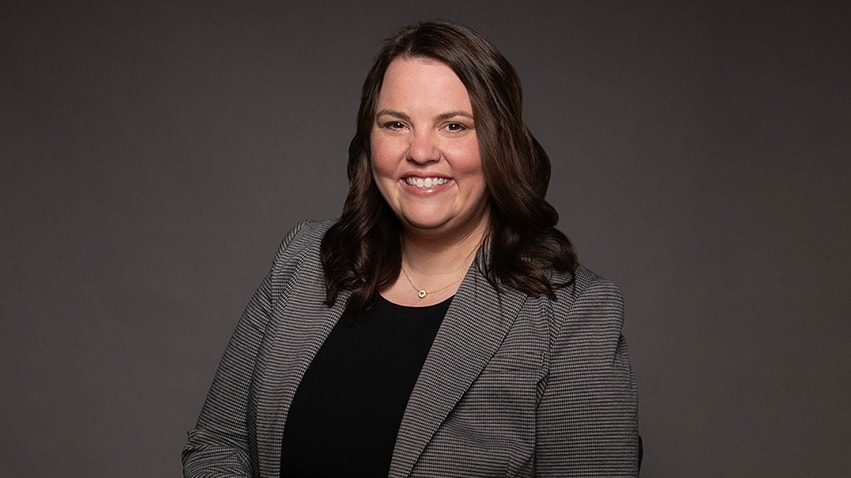- Who We Serve
- What We Do
- About Us
- Insights & Research
- Who We Serve
- What We Do
- About Us
- Insights & Research
Choosing the Outsourced Trading Model That’s Right for You
How does an asset manager know which outsourced trading model is best for them? Start by considering your ideal future state.
Recent trends in financial markets - including fluctuating interest rates, shrinking margins, expanding use of performance-based fees, and increasing regulation - have triggered the need for capital light, variable cost operating models. The ability to leverage another company’s assets and expertise not only provides margin flexibility in the face of volatility, but also offers business agility and scale as change accelerates.
Outsourced trading has gained traction not just because it helps reduce costs and increase efficiency, but also because it enhances expertise, scale, and capability. In other words, outsourcing is no longer recessionary but “future state”.
An outsourced trading service provider takes on the costs and complexities of trading related activities and delivers them back as a service on a variable cost basis, customised for individual strategies, because one size does not fit all when it comes to trading. There are different models that institutional investors can implement. These include:
- Full integration,
- Component integration.
Component integration is commonly referred to as a hybrid or co-sourced model, as the institutional investor retains traders in-house.
How do you know which is the best model for you? When making a decision, start by considering your ideal future state. If you had a blank slate, how would you prefer to operate? From there, you can work backwards to find the right outsourcing solution and partner.
Full Integration
With full integration, the institutional investor does not conduct trading internally, instead fully leveraging and taping into the expertise of an outsourced provider. While this fully configured solution is used extensively by start-up asset managers or new fund launches, it is also being adopted by larger, more established institutional investors. Full integration offers the greatest benefits because the providers handle everything from trade execution to settlement. This transforms the operating model to one that is highly efficient, scalable, and combinable with services such as trade settlement oversight and foreign exchange execution.
There are multiple benefits to full integration beyond cost reduction. Because full integration can be readily combined with other services, such as middle and back-office outsourcing, this approach significantly increases efficiency. The institutional investor also benefits from enhanced trading capabilities as the outsourced provider has more leverage and resources to execute trades, owing to more trading volume, larger investment in trading capabilities, and specialisation. And institutional investors that choose to fully outsource are able to redeploy trading staff in other value-added roles. For example, the head of trading may serve as head of trading oversight, shifting their expertise to making strategic decisions and aligning trade activities with organisational goals. In this role, they may also strengthen the control framework, enabling robust risk management and compliance oversight.
Component Integration
With component integration, the institutional investor utilises an outsourced trading desk to augment their capacity and capability and elects to outsource only certain types of trading (i.e. one component of their investment mandate) but does so completely. This model allows institutional investors to tap into new markets and asset classes seamlessly while retaining a trading function. An example of a component relationship is a UK-based equity manager that outsources trading in another global region but retains traders for the UK. Another example is an income fund manager outsourcing bond trading but retaining equity trading in-house. An institutional investor no longer needs to staff a trading desk for every region and market in which they invest.
Alternatively, an institutional investor can choose to retain traders in each region and asset class in which they invest, but instead of staffing for their peak volume days, they staff for average days and outsource on higher volume days. Component integration can provide many of the same benefits as full integration and allows institutional investors to leverage the expertise and capabilities of a scale provider, while reducing overhead.
Weighing the Benefits of Outsourcing
The costs and benefits should be weighed carefully before making a decision to outsource your trading and you should be confident that you have considered all potential risks to these models as well. Once done, how do you know which model is the right one and that the decision to outsource is the right one for your organisation? In each, expertise, cultural fit, people, and customisation around specific needs are critical considerations.
Selecting the right provider matters the most, since you will rely heavily on the outsourced trading desk in both models. The main consideration is the stability of the outsourcing provider. What is their ownership structure and how stable is the ownership? How much capital and insurance do they carry? How robust is their business continuity model?
A second consideration is alignment of interests and the potential for conflicts of interest. Does the provider trade on a principal basis or for proprietary accounts? Do they own execution venues that might be prioritised over others? How do they prevent information leakage? And, ultimately, how do they manage potential conflicts of interest?
Another consideration is expertise in managing the conversion to an outsourced model. A successful track record of transitioning to outsourced trading has increased significance in a full or component model.
One final consideration is communication. In any outsourcing application, communication is important. In a component model, where the institutional investor is spreading trade flow between internal and external trading desks, the interaction between the in-house and outsourced traders must be especially crisp.
Meet the Experts

Amy Thorne
Head of Integrated Trading Solutions, EMEA

Robert Arnott
Head of Brokerage, APAC

Stephanie Farrell
Head of Integrated Trading Solutions, Americas
Northern Trust Banking & Markets is comprised of a number of Northern Trust entities that provide trading and execution services on behalf of institutional clients, including foreign exchange, institutional brokerage, securities finance and transition management services. Foreign exchange, securities finance and transition management services are provided by The Northern Trust Company (TNTC) globally, and Northern Trust Global Services SE (NTGS SE) in the European Economic Area (EEA). Institutional Brokerage services including Integrated Trading Solutions (ITS) are provided by NTGS SE in the EEA, Northern Trust Securities LLP (NTS LLP) in the rest of EMEA, Northern Trust Securities Australia Pty Ltd (NTSA) in APAC and Northern Trust Securities, Inc. (NTSI) in the United States. For legal and regulatory information about our offices and legal entities, visit northerntrust.com/disclosures. For Asia-Pacific markets, this communication is directed to expert, institutional, professional and wholesale clients or investors only and should not be relied upon by retail clients or investors. © 2024 Northern Trust Corporation.